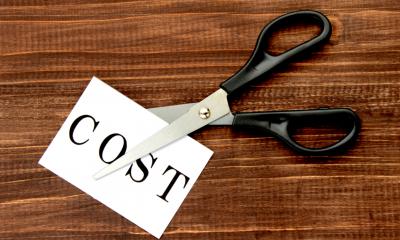
A sudden increase in demand can happen for many reasons and it may seem like great news at first. But sometimes a surge in orders can have a negative effect on a business
What is overtrading?
‘Overtrading’ happens when a business struggles to find the resources or cash necessary to service a customer order before it has been paid by the customer. It’s a common problem and often affects startups and small firms that are trying to expand rapidly.
Overtrading can happen when a business takes on a lot of orders without having enough working capital to fulfil them or a large order that requires access to more cash or resources than usual. Working capital is the actual cash or funding you have in the business, minus whatever you owe to suppliers, bank, etc. Overtrading can also happen when supplies or deliveries are delayed, which can create serious cashflow problems.
It can be easy to fall into the trap of taking on more or larger orders than you can fulfil.
What are the dangers of overtrading?
Overtrading can have many negative effects. Not only can it place a strain on finances and cause unnecessary stress, it can also damage the business’ reputation if quality dips or the business fails to deliver on its promises. In balance sheet terms, your liabilities outweigh your assets and your debt outweighs the cash you have in your business.
The business is likely be viable, with lots of interest in services or products, but without sufficient working capital, the business can experience serious problems and the survival of the business could even be at risk.
Which businesses are at risk of overtrading?
Overtrading tends to affect startups, because finance can be very tight in the early stages of your business. Businesses wishing to expand can also face problems if they take on too many orders without having sufficient funding and resources in place.
Do you have enough working capital?
In theory, if you’re selling more, you’re making more money. But are you receiving payment from your customers on time? You must issue your invoices on time and keep tabs on late payers. Always ask yourself if there is enough working capital within your business before agreeing to new business. You may need to access additional finance before you can accept the business.
How can I avoid overtrading?
Consider first whether you have the working capital to service the order. If not you, need to arrange appropriate funding.
Can you ask customers to pay in instalments or portion of the costs upfront - for example, to cover the cost materials? Is it worth offering customers an incentive for early payment? Consider whether factoring and invoice discounting or asset finance can offer solutions to cashflow issues caused by overtrading.
If cashflow is a problem, look at ways to cut costs in the business. If you’re experiencing VAT or PAYE problems, agreeing a Time to Pay deal with HMRC is worth considering, because it can enable you to spread payments.
If your business needs restructuring and is running up too much debt, a company voluntary arrangement between the company and creditors could be the best solution. It’s a great option for viable businesses that needs additional finance or just some extra help to restructure. Always seek legal or insolvency advice before going ahead with a restructure or insolvency procedure.
With thanks to Keith Steven of KSA Group Ltd. He is the author of insolvency and turnaround website www.companyrescue.co.uk


